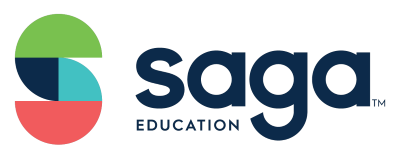Our Students Deserve a National Tutoring Corps
March 29, 2022
I first labeled myself a “bad student” at age 8, when I was a third-grader in the low-income community of Boston where my family lived. I remember so clearly feeling disconnected from my teacher, from her lessons and from any notion that I could succeed academically.
Unfortunately, I was much too young to explain any of this to my mom or the other adults in my life. For the next four years, every class got harder, every new concept more challenging and my inadequacies seemingly insurmountable.
By the time eighth grade was over, I was a D+ student, maybe C- on a good day. And I had fully accepted that school wasn’t for kids like me.
I enrolled in a charter high school that, by the time I was a junior, was experimenting with a new strategy to boost academic performance: high-dosage, high-impact tutoring, delivered to students during the regular school day. Each day, every student met with our tutors, who helped us better understand the concepts covered in math and English language arts. This rebuilt my foundational skills. My tutor knew my name, my birthday, and even my mom, who was delighted by the frequent calls telling her how well I was doing. He taught me how to improve my study habits. He shared pieces from his childhood, which in some ways mirrored my own. Most importantly, he continuously reinforced my emerging self-confidence. By graduation, I won a full Posse Scholarship to study philosophy at Union College.
I say this without a trace of exaggeration: high-dosage tutoring changed my life.
That’s why I was so excited to hear President Joe Biden, in his State of the Union address on March 1, call on Americans nationwide to take on roles as tutors. The White House Fact Sheet detailed the plan for high-impact tutoring recommending that the nation’s schools should be equipped with trained and supported tutors who provide evidence-based, small-group tutoring to students who have been especially impacted by the pandemic.
Yes, part of my desire to see this come to fruition is because I help run Saga Education, a nonprofit that delivers high-dosage math tutoring to high school students and supports national tutoring efforts — a nonprofit, by the way, that I co-founded. But I also know what can happen when students need supports and don’t get them.
Consider the devastating impact of COVID-19 on our young people. One report noted that during the first months of the pandemic, students learned just 87% of the reading and 67 % of the math as they did in more typical years before the pandemic. Unfinished learning was even more pronounced in low-income communities like the one where I grew up, the report revealed. A stunning 59% of educators in low-income schools also reported learning gaps of more than three months, 13 percentage points higher than more economically stable schools. These challenges come in addition to the long-standing inequities in K-12 education that have driven a wedge between white students and students of color, the affluent and the poor.
But studies show that high-dosage tutoring, like the kind I began to receive in high school, can significantly improve academic performance, retention and graduation rates. For example, researchers from the University of Chicago and the Massachusetts Institute of Technology’s J-PAL North America have studied Saga’s success rate, and found that our students learn up to 2½ years of math in one school year. Additionally, math failure rates decline by 63% and student attendance improves by as much as 18 days per year. Another study found that ninth- and 10th-graders in our program see improvements not only in their test scores, but in their overall course grades. The results, according to one of the report’s authors, were “remarkable.” This is particularly noteworthy since students who pass Algebra 1 are four times more likely to graduate than those who don’t.
Bringing thousands of tutors who have been trained in evidence-based approaches to math instruction, literacy and other subjects into our schools will have a transformative effect in helping students recover from the COVID-19 pandemic. And it will do so in the most equitable way possible: by making it a regular part of the school day. My mother, the single parent of three, had neither the time nor the money for private tutoring. Neither do the families of most struggling students. This approach reimagines how we deliver education to children by specifically carving out time for small group tutoring and mentoring at a time when they’re already in place and primed for it.
Our country spends billions and billions of dollars on education every year. But for the most part, the needle hardly moves — and the equity gaps widen. The time has come to invest in the proven leverage point of high-dosage tutoring delivered by trained and supported tutors. There are millions of students out there just like me who are waiting to discover their academic gifts. They just need a tutor to help them find it.
Antonio Gutierrez is the co-founder, vice chairman and chief of marketing and communications of Saga Education, a nonprofit that provides high-dosage math tutoring in high schools across the country.
